2019 Seminar

March 19-20, 2019
The Friday Conference Center
1.5 CEU / 15 PDCH offered
Partners: $175 per person; $600 per team of four / Non-Partners: $200 per person; $700 per team of four
The goal of World View’s Latin America and North Carolina Seminar is to increase educators’ knowledge of Latin America and Latin American cultures, particularly as it relates to Latinx students in North Carolina. We will explore key issues and themes related to Latin America’s history, politics, economies and the diverse cultures represented in this region as well as the relevant connections between the region and North Carolina. Educators will gain knowledge and understanding of the current demographics in North Carolina as they related to Latinx populations, learn strategies for integrating Latin American themes into curriculum and build their toolkits of resources and strategies for helping Latinx students find educational success. This program is appropriate for all K-12 and community college educators.
Schedule | Speakers | Concurrent Sessions | Exhibitors | Program Material | Lodging & Directions
Download a copy of the program here.
Schedule
| TUESDAY, MARCH 19 | |
| 8:00 a.m. | Registration and Continental Breakfast |
| 8:45 a.m. | Welcome |
| 9:00 a.m. | Plenary I: Contemporary Latin American Political Trends and Challenges
Jonathan Hartlyn, Professor, Political Science, UNC-Chapel Hill
|
| 10:00 a.m. | Plenary II: NAFTA 2.0: The Future of the US-Canada-Mexico Relationship
Remedios Gómez Arnau, Consul General of Mexico in Raleigh, Consulate General of Mexico in Raleigh
Nadia Theodore, Consul General of Canada
John Loyack, Vice President, Global Business Services, Economic Development Partnership of North Carolina
Moderator: Michael W. Cotter, Ambassador (ret.)
|
| 11:00 a.m. | Break and Exhibits |
| 11:15 a.m. | Concurrent Sessions I
Sessions highlight Latin American countries, issues, resources for teaching about Latin America and strategies for success with Latinx students.
|
| 12:15 p.m. | Lunch |
| 1:15 p.m. | Plenary III: The Hispanic/Latino Community in North Carolina
Krista M. Perreira, Professor, Social Medicine, School of Medicine, UNC-Chapel Hill
|
| 2:15 p.m. | Transition to Sessions |
| 2:30 p.m. | Concurrent Sessions II
Sessions highlight Latin American countries, issues, resources for teaching about Latin America and strategies for success with Latinx students.
|
| 3:30 p.m. | Break and Transition to Sessions |
| 3:45 p.m. | Concurrent Sessions III
Sessions highlight Latin American countries, issues, resources for teaching about Latin America and strategies for success with Latinx students.
|
| 4:45 p.m. | Adjourn |
| WEDNESDAY, MARCH 20 | |
| 8:00 a.m. | Continental Breakfast |
| 8:30 a.m. | Plenary IV: Constellations of Disadvantage and Resilience in the Latinx South
Angela Stuesse, Assistant Professor, Anthropology and Global Studies, UNC-Chapel Hill
|
| 9:30 a.m. | Plenary V: Addressing Educational Inequities for Latino Student Success
MariaRosa Rangel, Director, Office of Equity Affairs, Wake County Public School System
|
| 10:30 a.m. | Break and Exhibits |
| 10:45 a.m. | Student Panel: A Vision for Success: Learning from Students Moderator: Jakelin Bonilla, Social Innovation Initiative Coordinator, Campus Y, UNC-Chapel Hill
|
| 12:00 p.m. | Closing Remarks, Next Steps and Adjourn |
Speakers
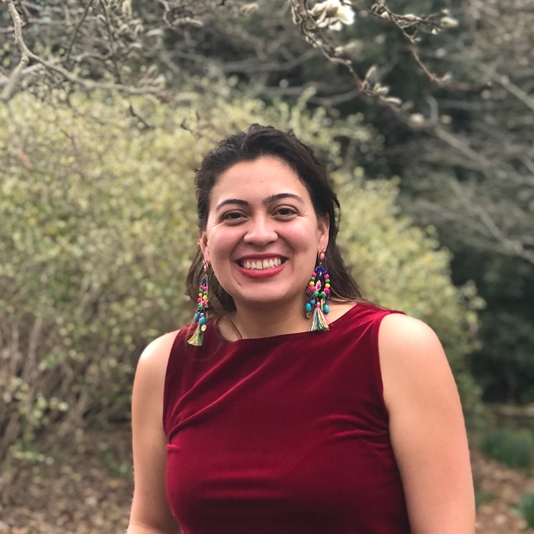
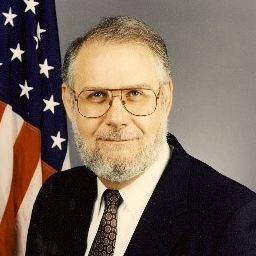
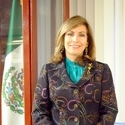

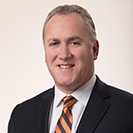
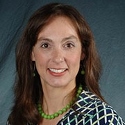
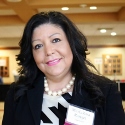


Concurrent Sessions
| GRADES K-5 |
| Mi Centro – A Summer Program for English Learners Attending Pre-K in the Fall
Kim Meza, ESL Director, Vance County Schools
José Martínez, ESL Specialist, Vance County Schools
This session focuses on Vance County School’s summer pre-K program Mi Centro, a summer program for three and four-year-old English Learners who will attend pre-K in the fall. It will provide a general overview of the program Mi Centro, what it’s all about and how other school systems can use this model to help prepare and give a “head start” to English Learners entering Pre-K.
|
| GRADES 6-8 |
| Enlaces: Then and Now
Jennifer L. H. Hall, Curriculum and Instruction Coach, Rogers-Herr Middle School, Durham Public Schools
Tawauna Stewart, Dean of Students, Rogers-Herr Middle School, Durham Public Schools
Elizabeth Propp, EC Teacher, Rogers-Herr Middle School, Durham Public Schools
Meridith Herndon, Eighth Grade Science Teacher, Rogers-Herr Middle School, Durham Public Schools
P. Trent Hall, Eighth Grade ELA Teacher, Rogers-Herr Middle School, Durham Public Schools
Over the past two years, a team of five faculty members have been given the opportunity to create our own program that seeks to serve our Hispanic/Latino students, approximately 25 percent of our student population. In the first year, we began by developing relationships with students, analyzing data and hosting family nights to better determine our students’ and families’ needs. Now in our second year, we have developed a tiered system of support based on students’ needs. Come find out about our processes, successes and areas of growth so that you can implement a similar plan in your school.
|
| GRADES 9-12 |
| Working with Immigrant Populations in the College Enrollment Process
Juana Hernández-Urquiza, CFNC State Representative for Spanish Services, College Foundation of North Carolina
In this session educators will understand the challenges that immigrant populations face in the K-12 system and the challenges gaining access to the college enrollment process. The presenters will identify best practices in supporting immigrant populations through the college enrollment process with a focus on financial aid and residency determination. Participants will leave with tools and resources to better support students in their schools and their communities.
|
| GRADES K-12 |
| Latin American Studies in the K-12 Classroom
Corin Zaragoza Estrera, Outreach Coordinator, Institute for the Study of the Americas, UNC-Chapel Hill
In this session K-12 educators will learn about the resources and workshops available through the Consortium in Latin American and Caribbean Studies, which works to promote the study of Latin America and the Caribbean. Educators will discuss the benefits of incorporating Latin American studies into their classrooms and learn how the Consortium can support efforts in the classroom and beyond.
|
| GRADES 6-12 and COMMUNITY COLLEGE |
| Teaching Academic Content Through Digital Storytelling
Lori Edmonds, Clinical Assistant Professor of Education, School of Education, UNC-Chapel Hill
Digital storytelling is emerging as an engaging way to connect students’ identities with classroom learning. This session introduces educators to foundational digital storytelling techniques and a variety of applications in which teachers can develop their students’ content understanding, academic language proficiency and research and communication skills, while connecting with knowledge that students bring from their out-of-school lives. Content areas discussed include science, social studies, English language arts and math. Examples also include themes of cross-cultural understanding and environmental conservation.Participants will be able to explain the importance of connecting the knowledge students bring from their out-of-school lives with the content being learned in their classroom; share at least one way in which students’ funds of knowledge can be connected to their content area; identify the basic components of a digital story; list a variety of digital storytelling platform options; and list several benefits of using digital storytelling in their classroom.
|
| Hurricane María: A Personal and National Experience in the Context of Colonialism and Disaster Capitalism
Vicky Muñiz Quiñones, University of Puerto Rico (retired)
This session focuses on the personal experience of the speaker and that of her compatriots during the passing of Hurricane María over Puerto Rico on September 20, 2017 and the days that followed as they faced in shock and impotence a devastated country and the lack of resources to recover. It argues that notwithstanding its enormity, the catastrophe owed much to more than a century-old colonial practices of both the federal and the local governments since the US takeover of the island in 1898. The effects of various restructuring actions to conform to the needs of US capital have impaired the island from identifying effective solutions to its problems. The neoliberal economic strategies being put in place since María have worsened recovery by speeding restructuring efforts that were being implemented before the disaster. “Disaster capitalism” has served to push through the privatization of state assets in which the dismantling of the public education system is but one example. It is hoped that the session will stimulate reflection and debate.
|
| GRADES 9-12 and COMMUNITY COLLEGE |
| “Sí Se Puede”: Building Trust in the Age of Division
Sarah M. Wright, Instructor, Surry Community College
Generally, as educators, we like to think that ALL of our students trust us. We self-identify as open and welcoming in class and have our doors open during office hours, but it is not always enough, especially in an age of increasing fear and distrust of the government. As fears of deportation and crushed dreams of obtaining DACA status increase, Latinx students often have questions about their academic futures that go unasked because they are unsure of who they can trust. At a minimum, students fear they will be judged for their status, or at worst reported for their status or lack thereof. In the session, through examining our current beliefs and practices, we will explore best practices for building trust with Latinx students (similar techniques can be applied to other often-marginalized groups). Additionally, we will cover some important information to be aware of when advising students who are children of immigrants, immigrants with DACA status and undocumented students as they navigate financial aid and residency status (RDS), scholarships and career choice. From stickers to organizations to school-wide events, we will discuss a path to establishing and building trust with our Latinx students on an individual level and campus-wide.
|
| Teaching about Migration with the New Roots/Nuevas Raíces Oral Histories
Hannah Gill, Associate Director, Institute for the Study of the Americas, Latino Migration Project Director and Acting Director, Southern Oral History Program, UNC-Chapel Hill
The New Roots/Nuevas Raíces Oral Histories are a bilingual online resource that consists of more than 200 audio-recorded and transcribed interviews with North Carolinians with Latin American heritage as well as professionals who work with immigrants and refugees. New Roots informs public history and creates resources that teachers in social studies, history, language arts, Spanish, literature and other fields can use. Learn how to become a storyteller or use this resource for your family heritage, research or teaching.
|
| Why Films in the Classroom?
Manuel A. Sánchez Cabrera, PhD Student/Graduate Teacher Assistant, Department of Romance Studies, UNC-Chapel Hill
Why films? How can films help us to understand our realities and differences? In what ways does the moving image bring to the classroom images that are not available in the mainstream media. How can we tell better stories to our students through films? In this session, we are going to discuss the potentials and dangers of using films in the classroom as well as the notions and importance of representation, history, and contexts in order to understand the diversity of our students. We are going to discuss, mostly, films from Latin America and the United States, but the strategies are applicable to films from other regions of the world. Our present time, and our context require of us (teachers) to go beyond our taken from granted ideas about the world. Films and documentaries can help us understand our students´ needs and challenges whether they were born here or abroad. This session is intended to raise questions about the way we can improve as educators, and how we can use better tools (in this case films) to understand our ever-changing classrooms.
|
| GRADES K-12 and COMMUNITY COLLEGE |
| Think Global, Act Local: A Challenge for Costa Rica and Central America
Odilie Calvo, Executive Director, Immersion Abroad Costa Rica
Daily life in the twenty-first century urges citizens to consider not just the health and well-being of one’s immediate community and family, but of the entire planet. Worldwide disparities in education, healthcare and trade, however, often challenge consumer choices. Costa Rica serves as a leading nation in Central America with a GDP more than 50 percent higher than the rest of its neighbors, but how did it rise to such economic stability? This session discusses Costa Rica’s role in the global economy and conflicting trends to support local community markets and family-run small businesses in the face of rising mega industries.
|
| Understanding the Mexican Culture: “Bridging the Gap for Student Success”
Hilda de León, Assistant Principal, Knightdale High School, Wake County Public School System
MariaRosa Rangel, Director, Office of Equity Affairs, Wake County Public School System
Is your school faced with a growing Mexican student population? If so, this is the workshop for you. In this workshop, you will learn about the Mexican educational system, cultural norms, values, traditions, and the challenges students faced immigrating to the United States. Participants will walk away with specific culturally relevant strategies to increase student engagement and academic achievement.
|
| Exploring Latino Food Culture through the Power of Storytelling
Carina Cordero Brossy, Global Education Consultant and Podcaster
Food is essential to human survival but its functionality is far more complex. Food serves as a window into societal values, attitudes, perceptions of self, economics, history and more. This session explores the foodways, traditions and culinary history of Latin America, specifically the Caribbean and Mexico. We will also examine the impact storytelling has on tying immigrant populations to their food choices and culinary identity long after migration. The session will offer tools for teaching about Latino food culture in the classroom.
|
| Window of Educational Guidance
Monica Colín, Consul for Community and Educational Affairs, Consulate General of Mexico in Raleigh
This session will provide information about the educational services and programs offered by the Mexican government in the United States, including resources in English and Spanish that support Mexican families navigating the US education system and support for those who want to continue their higher education. This information is useful for all educators who support the academic success of and path toward higher education for students and families from Mexico.
|
| Water in the Tropics
Diego Riveros-Iregui, Assistant Professor, Department of Geography, UNC-Chapel Hill
The tropics are currently inhabited by 40% of the world’s population and 55% of the world’s children under the age of five, yet by 2050 those proportions will increase to 50% and 60%, respectively. This projected growth makes the tropics of particular interest to address global sustainability questions, as tropical regions will inevitably experience climbing pressures and demands for essential ecosystem services. The Galapagos Islands offer a unique example of this global conundrum: a tropical environment with distinct, sharp microclimate zonations imposed by topography combined with an exceptional demand for freshwater due to population growth, tourism, land use change, and contamination. Learn more and join the discuss in this session with Professor Riveros-Iregui.
|
Exhibitors
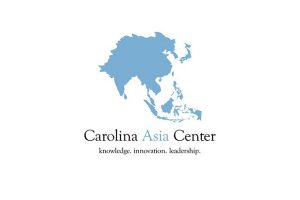 |
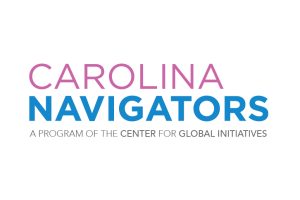 |
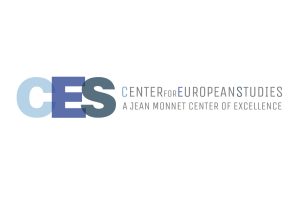 |
 |
 |
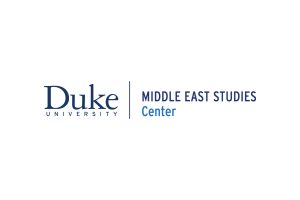 |
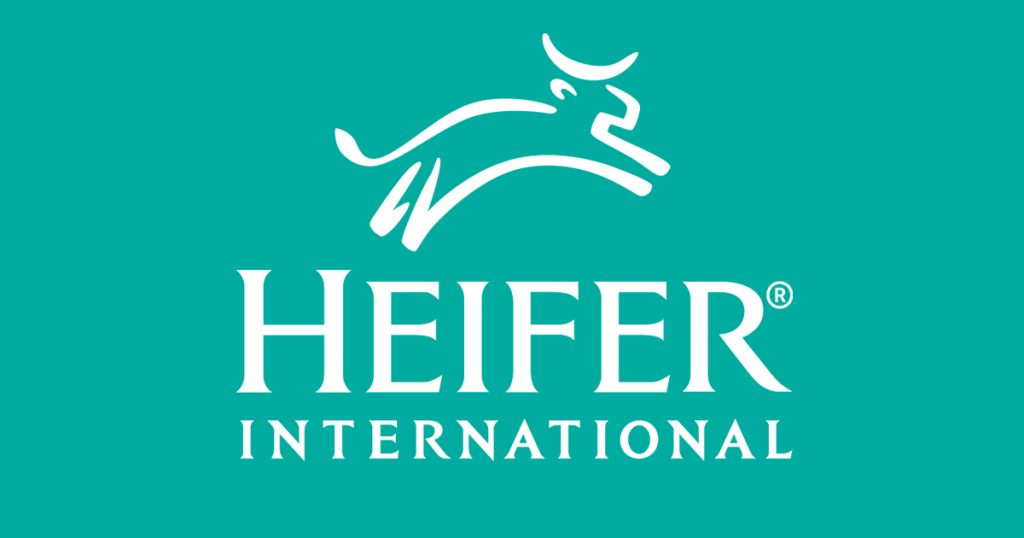 |
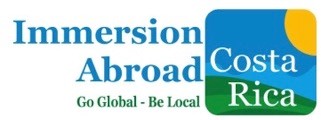 |
 |
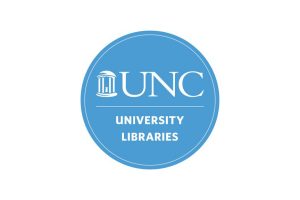 |
 |
Program Material
- Please take a look at: Latin America in 2019: Will Political Upheaval Stall Growth? and the podcast titled 2019: A Look Ahead with UPenn Professor William Burke-White and Benjamin Gedan, a senior advisor to the Latin America Program at the Woodrow Wilson International Center for Scholars. Both are available here.
Lodging & Directions
